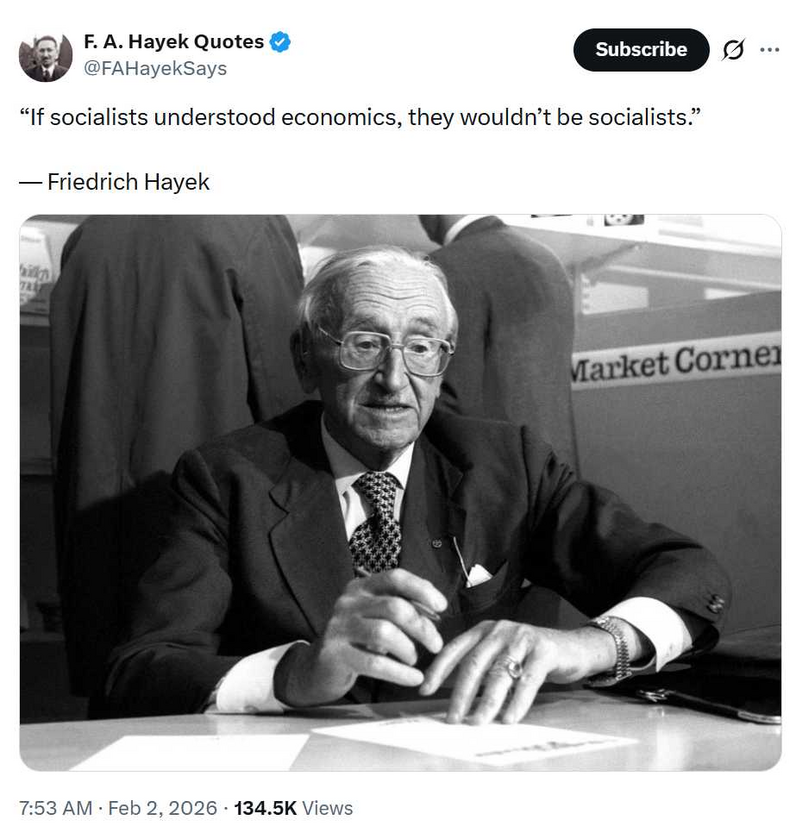The philosophy of the Left has been overwhelmingly defined by Marxism since the 1840s, and most of us think of it as a fully ultra-progressive ideology. This philosophy gives rise to a certain condition among those who adopt it, a condition of emergency that Progress itself hasn’t already happened. Stelios Panagiotou, the staunch classical liberal at the mostly post-liberal British philosophy club called “Lotus Eaters,” has expressed the intrinsic crisis of Leftism this way:
The philosophy of the left, for the most part, seems to stem from a deep resentment of the past, which makes one view the present as a condition of emergency that requires the grandest possible oppression as a means for achieving a future utopia.
Panagiotou gets it right, but there’s a lot more to the story. The problem is that while Marxism is ultra-progressive in the sense discussed—that all progress no matter how fast is always too slow—it is also strangely and obviously regressive. In fact, it isn’t possible to understand Marxism, or the philosophy of the Left, without understanding that it is firstly deeply regressive, though in a dialectical way. Marxism is regressive by progressive means.
At bottom, the philosophy of the Left is ultimately obsessed with the human State of Nature and seeks to return to it, and it works very hard to preserve elements of yesteryear and the present, sort of. Communism as a system of societal organization describes a return to Eden on man’s own terms in open defiance of God. Going back to Eden is full regression, however, and the paradox of Marxism is that it anticipates accomplishing this full regression through relentlessly marching forward until the circle returns back to its beginning.
In a prosaic sense, think of their obsessions about cultural preservation with "indigenous" peoples, for example. What they are angry about in the Modern and Postmodern Eras is the development of Western Civilization, which they believe has stripped mankind of access to his State of Nature (thus, “alienation”). To the Marxist, Western Civilization and individuality, through the false doctrine of private property. have stripped mankind of what makes it human.
Marx was explicit about this. In his Economic and Philosophic Manuscripts (1844), he explained that Communism represents a “compete return of man to himself as a social (i.e., human) being.” His entire theory of alienation revolves around that idea—that mankind has a social (communistic) State of Nature that truly defines him as human. The tool of alienation is given as private property, which ultimately enables individuality (opposite his “social” nature) and which is defined through what lawyers call “the fundamental right to exclude” (cf. Woke “Inclusion” as a priority). Marxism is believing that one person being able to say to another “this is rightfully mine so you can’t have it” is the downfall of humanity’s humanity.
That angry focus and ressentiment against this alienation on principle is why they want to preserve other cultures in living time capsules and simultaneously tear down Western Civilization to and beyond its foundations. The time-capsules are actually preservation sites against the ravages of Western Civilization and potential leverage points for the tokenizing Soviet korenizatsiya program against the “great power” of Western Civilization—never let a crisis go to waste. Further, indigenous cultures (as they view them) and outsider cultures are ones that have been less contaminated by the evils of Western Civilization, which makes them noble because in certain ways they're closer to the State of Nature they idealize. For the Marxist, man’s State of Nature is genuinely and truly communistic, as in communal owning and sharing of all in relative plenty.
Marx particularly defined “history” itself as mankind leaving his State of Nature, which was primitive communism, and marching through various stages of civilization. Whether blurry or sharply defined, each of these stages is defined by its exploitative economic circumstances, all predicated on private property as the alienating force of Man from his communal true nature.
Marx was deeply religious in his Communism, and his Communism is fundamentally Manichean, so he believed this great evil must have some purpose that is eventually sublated to ultimately good. That purpose is to advance through “history” to gather civilization and then to aufgehoben (keep, abolish, and lift up) it in a mighty return to the human State of Nature (communist) on a higher level of development and expression that retains all of the gathered civilization of “history.” He was so obsessed with this alchemical, magical notion that he referred to this contradiction as “the riddle of history” (how do we return to State of Nature while keeping the benefits of history?) and said Communism is “the riddle of history, solved, and it knows itself to be this solution.”
It is the processes of history, which is the process of man’s becoming, not its beginning (alpha) or end (omega) that worry the Leftist. Indeed, as Marx indicated via the “riddle of history” construction, they, the Communists, are both the Alpha and the Omega of mankind—Alpha Man as mankind in his State of Nature and Omega Man as the ultimate civilized man, both socialist but only one indudstrial and civilized.
This is none other than believing “history,” as the process of man’s becoming, is the process of his becoming God. As he famously wrote in his 1843/4 Critique of Hegel’s Philosophy of Right with a subtle nod to the Persian/Aryan Mithraic cults,
The criticism of religion disillusions man, so that he will think, act, and fashion his reality like a man who has discarded his illusions and regained his senses, so that he will move around himself as his own true Sun. Religion is only the illusory Sun which revolves around man as long as he does not revolve around himself.
The problem to the philosophy of Leftism is “history” itself. The various manifestations of “history” as it progresses—“history” being when private property and individuality dominate in one way or another—are just an ugly means to a glorious end in true Manichean fashion. That end is the telos of the Communist project: to dialectically synthesize and make concrete a world filled with Rousseau's romantic, self-absorbed nonsense called “savages made to live in cities.” That is, it is to live once again in the communistic human state of nature while selfishly retaining all the benefits of individualist hard work and success.
The emergency Panagiotou referenced for them is that “history” has this grand, transformative, Manichean telos but only Leftists understand it. This means that we are constantly delayed from our eschatological gratification in the Communist Kingdom of Mankind-as-its-own-God until we expose the contradictions between our current ways of living (in Western Civilization) and what our true nature is and could be if we just understood more and better. Everyone who doesn't understand and join in the project is the source of human suffering and alienation from our true Being. They’re also selfish, thus a manifestation and cruel beneficiary of the central evil of the human drama called “history” at its present stage (the “status quo”), which they desire to maintain because it’s relatively good for them, others be damned. They are also to be dealt with by Manichean means, as with all evils in Manichean cults.
This philosophy is therefore not exactly a deep resentment of the past. It’s a resentment that the deepest human past hasn’t returned in glory and established a new Jerusalem over the world. It’s a romantic resentment of history as civilization itself.

















